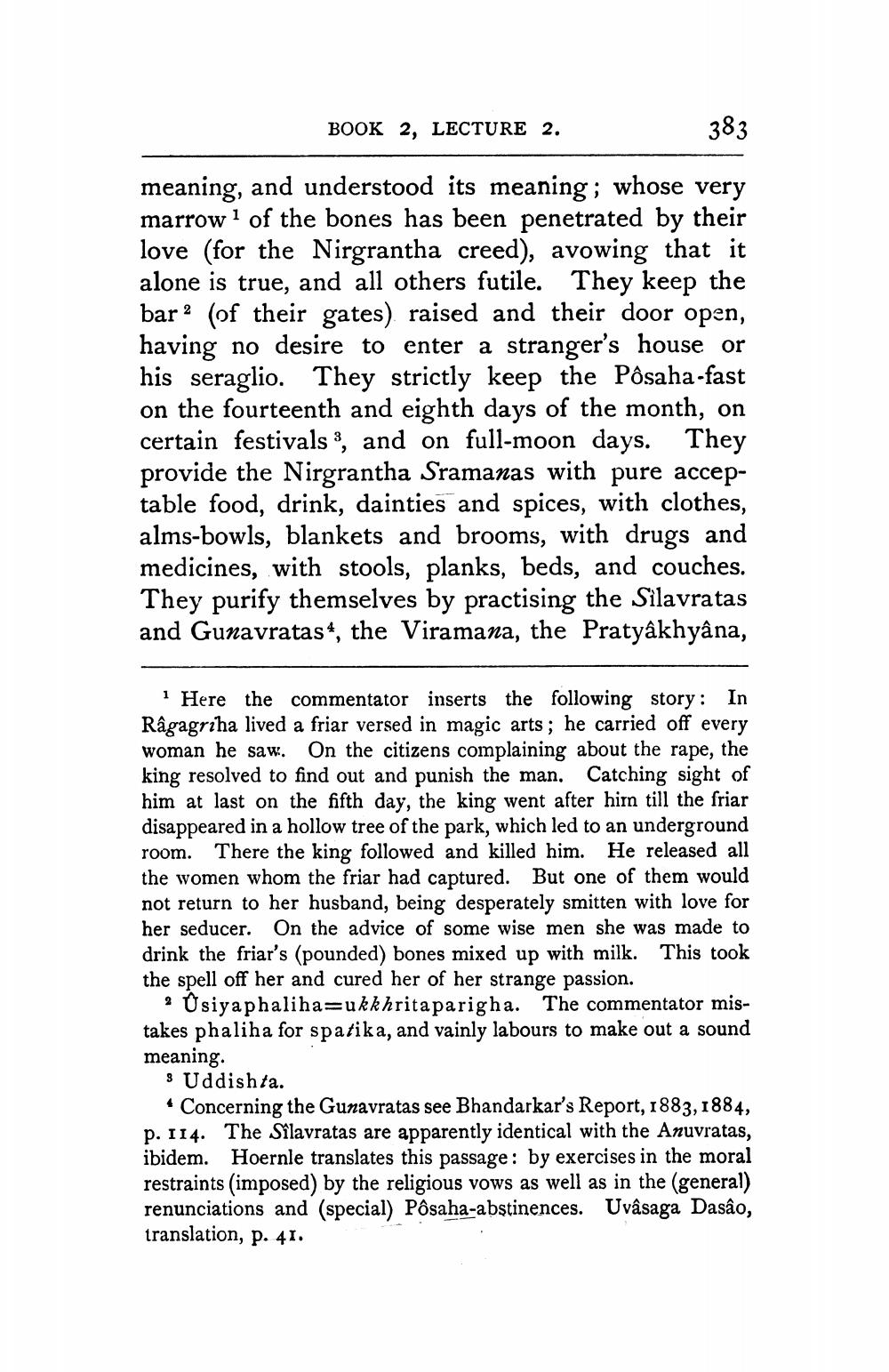________________
BOOK 2, LECTURE 2.
383
meaning, and understood its meaning; whose very marrow 1 of the bones has been penetrated by their love (for the Nirgrantha creed), avowing that it alone is true, and all others futile. They keep the bar 2 (of their gates). raised and their door open, having no desire to enter a stranger's house or his seraglio. They strictly keep the Pôsaha-fast on the fourteenth and eighth days of the month, on certain festivals », and on full-moon days. They provide the Nirgrantha Sramanas with pure acceptable food, drink, dainties and spices, with clothes, alms-bowls, blankets and brooms, with drugs and medicines, with stools, planks, beds, and couches.
They purify themselves by practising the Silavratas and Gunavratas*, the Viramana, the Pratyakhyâna,
1 Here the commentator inserts the following story: In Râgagriha lived a friar versed in magic arts; he carried off every woman he saw. On the citizens complaining about the rape, the king resolved to find out and punish the man. Catching sight of him at last on the fifth day, the king went after himn till the friar disappeared in a hollow tree of the park, which led to an underground room. There the king followed and killed him. He released all the women whom the friar had captured. But one of them would not return to her husband, being desperately smitten with love for her seducer. On the advice of some wise men she was made to drink the friar's (pounded) bones mixed up with milk. This took the spell off her and cured her of her strange passion.
Usiya phaliha=ukkhritaparigha. The commentator mistakes phaliha for spatika, and vainly labours to make out a sound meaning.
s Uddishta.
* Concerning the Gunavratas see Bhandarkar's Report, 1883,1884, p. 114. The Silavratas are apparently identical with the Anuvratas, ibidem. Hoernle translates this passage: by exercises in the moral restraints (imposed) by the religious vows as well as in the (general) renunciations and (special) Pôsaha-abstinences. Uvâsaga Dasão, translation, p. 41.




